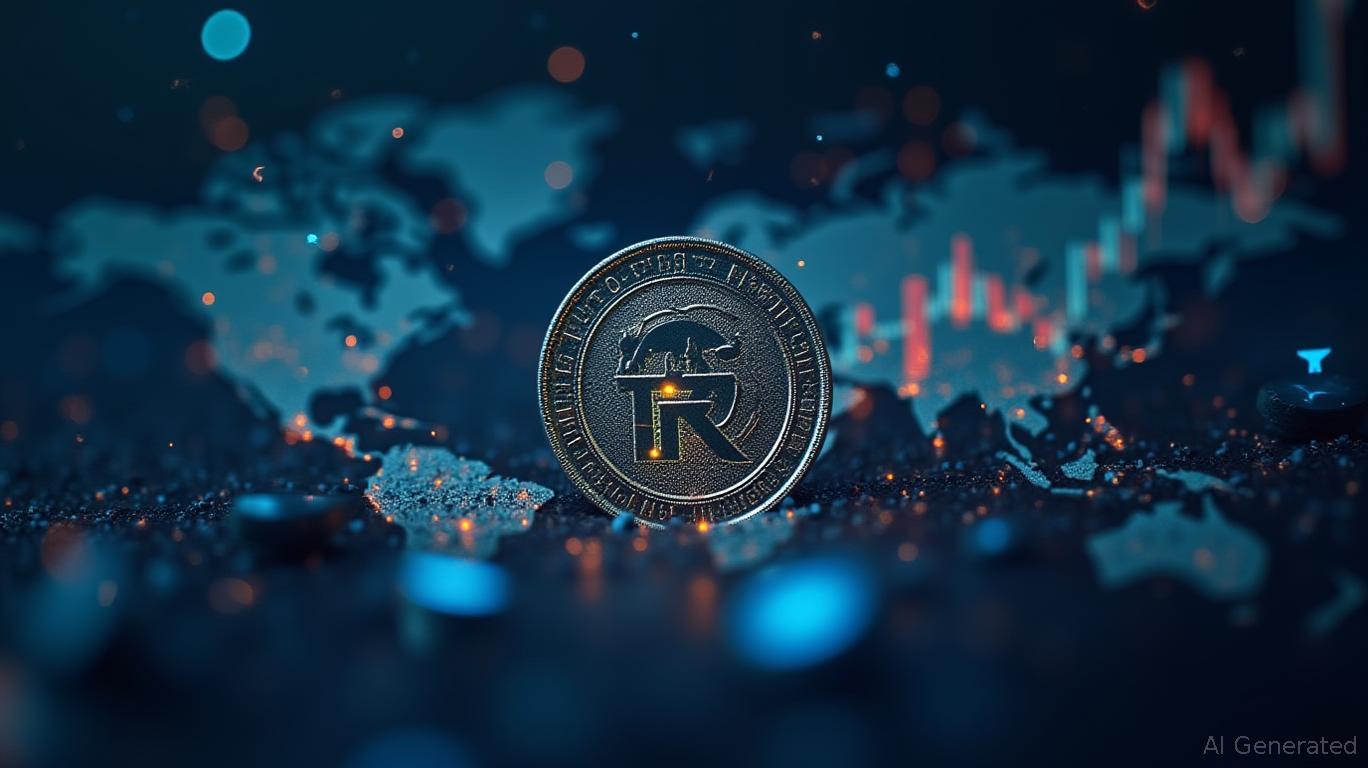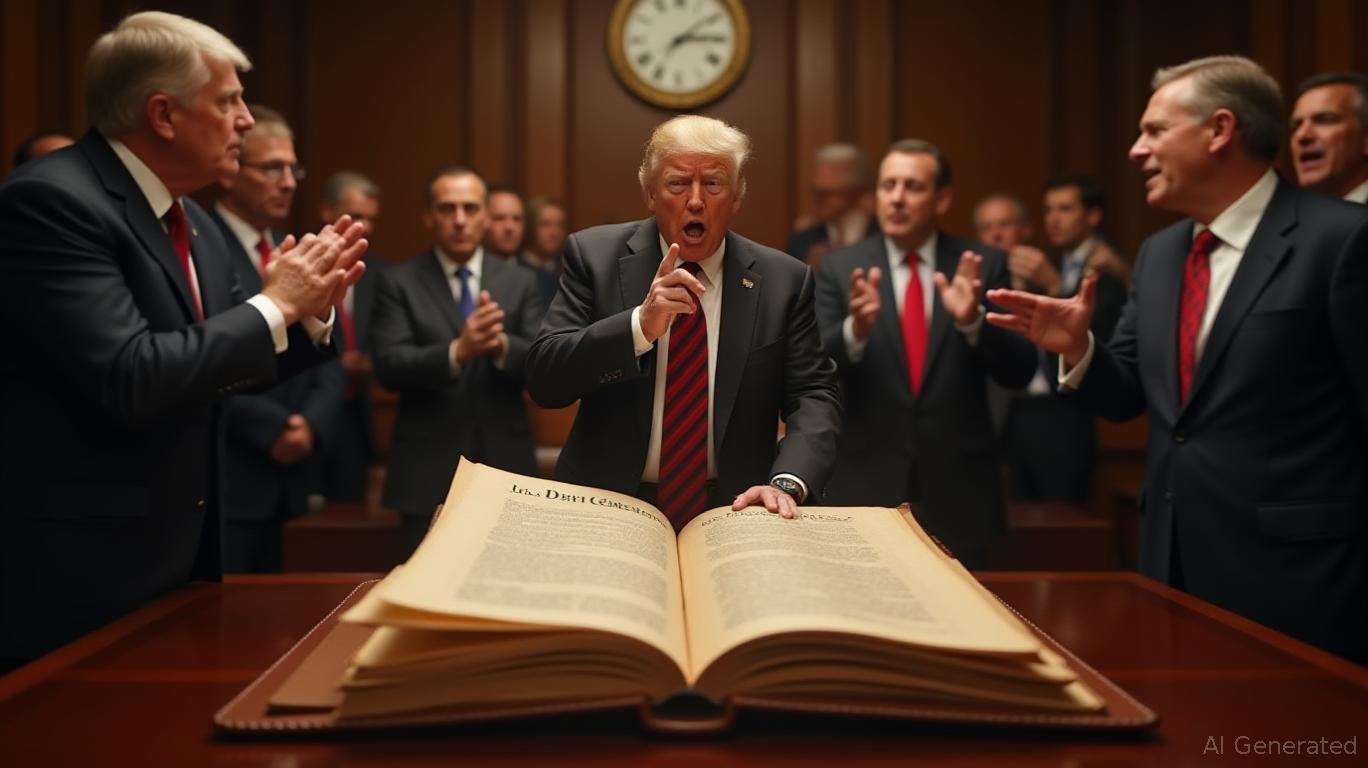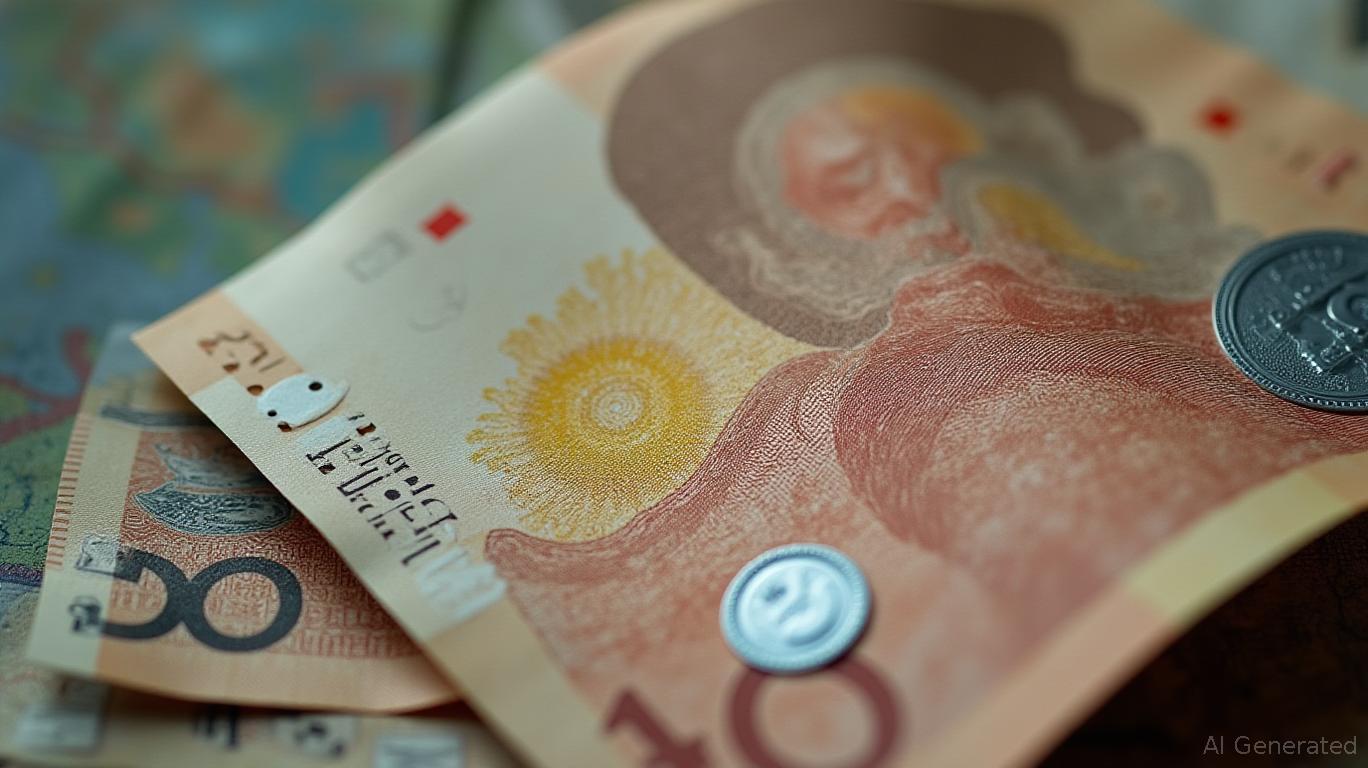U.S.-China Trade Tensions Intensify as Beijing Advocates for a Multipolar World Order
- China's Wang Yi emphasized a "multipolar world" amid U.S.-China trade tensions, framing it as an inevitable shift in global power dynamics. - Beijing's five-year plan prioritizes reducing foreign tech reliance and boosting domestic consumption, while U.S. tariffs and Chinese export controls disrupt global supply chains. - Pre-summit talks show "preliminary consensus" on avoiding further tariffs, but structural rivalry persists over rare earths, soybeans, and regional alliances. - Regional diplomacy highl
China has highlighted the certainty of a "multipolar world" just before a crucial meeting between President Xi Jinping and U.S. President Donald Trump, as ongoing trade disputes and strategic rivalry between the two countries continue to alter the global economic and political landscape. Chinese Foreign Minister Wang Yi made these comments, reflecting Beijing's determination to resist U.S. economic pressure and promote its vision for a more distributed international system, as reported by the
These talks are set against the backdrop of China's most recent five-year plan, which focuses on decreasing dependence on foreign advanced technology and encouraging domestic spending amid intensifying trade tensions. Following a high-level Communist Party gathering, the plan, according to

Despite ongoing negotiations, officials from both nations remain engaged in a series of retaliatory actions. The U.S. has enacted broad tariffs, including a 100% duty on Chinese imports effective November 1, while China has responded with restrictions on exports of vital minerals and rare earths, according to
Diplomatic efforts in the region have also been prominent, with China aiming to ease relations with Australia following military incidents in the South China Sea and amid broader U.S.-led alliances. Premier Li Qiang highlighted the importance of cooperation in green technology and digital innovation during discussions with Australian Prime Minister Anthony Albanese, as reported by
The upcoming Trump-Xi summit carries significant weight. U.S. Treasury Secretary Scott Bessent suggested there may be advances on rare earth and soybean agreements, but larger issues—such as U.S. efforts to persuade European partners to distance themselves from China and Beijing's growing presence in the Pacific—are still unresolved, Bloomberg noted. China's foreign minister once again called for "removing politics from economic matters" and opposing "trade conflicts," presenting the multipolar world as a natural progression in global affairs, according to the Economic Times.
As both countries maneuver through these intricate circumstances, the prospects for collaboration remain uncertain. While each side recognizes the importance of managing disagreements, the fundamental contest for technological and economic leadership appears set to continue, as reported by
Disclaimer: The content of this article solely reflects the author's opinion and does not represent the platform in any capacity. This article is not intended to serve as a reference for making investment decisions.
You may also like
Solana News Today: Solana's Tightrope Walk: ETF Investments, Price Fluctuations, and Regulatory Challenges
- Solana attracts institutional investors via ETF inflows, Hong Kong regulatory approvals, and the Alpenglow upgrade targeting validator cost cuts. - SSK ETF sees $24M weekly inflows, while Hong Kong's first Solana ETF launches October 27, expanding global institutional access. - SOL price rebounds to $195 but faces $200 resistance; analysts highlight $220 as a key breakout threshold for further gains. - Alpenglow aims to slash 80% of validator fees by 2026, enhancing decentralization through lower entry b

Political Stalemate to Drive U.S. Debt Higher Than Italy and Greece by 2030
- U.S. public debt-to-GDP ratio will surpass Italy and Greece by 2030, per IMF forecasts, reaching 143% vs. 137% and 130%. - Trump-era tax cuts, $1T defense spending, and political gridlock drove deficits above 7% of GDP since 2025. - Italy/Greece reduced deficits via austerity and EU funds, while U.S. faces debt servicing costs exceeding education/transport budgets. - Analysts warn U.S. debt path is unsustainable without structural reforms, as political stalemate blocks spending cuts or tax hikes.

China's approach with the Digital Yuan seeks to transform the landscape of international finance
- PBOC establishes Beijing and Shanghai centers to advance digital yuan strategy, enhancing domestic infrastructure and global reach. - Digital yuan pilot transactions exceed 14.2 trillion yuan, supported by 225 million wallets, while PBOC enforces crypto bans to mitigate risks. - Dual-center model balances domestic innovation with international collaboration, expanding digital yuan adoption through commercial banks. - China’s strategy aims to reshape global CBDC perceptions, leveraging regulatory rigor an

U.S. Bets $40 Billion on Argentina's Economic Reforms as Peso Rallies and Poverty Rises
- Trump praised Argentina's Milei for a landslide election win, linking it to U.S. financial gains amid a 6% peso surge against the dollar. - U.S. Treasury's $20B currency swap and $40B total stake aim to stabilize Argentina's economy, despite 53% poverty rates and political instability risks. - Milei's austerity reforms face challenges: poverty deepening, congressional alliances needed, and potential peso collapse if reforms stall. - Markets reacted positively to the election, with Argentine bonds and sto
